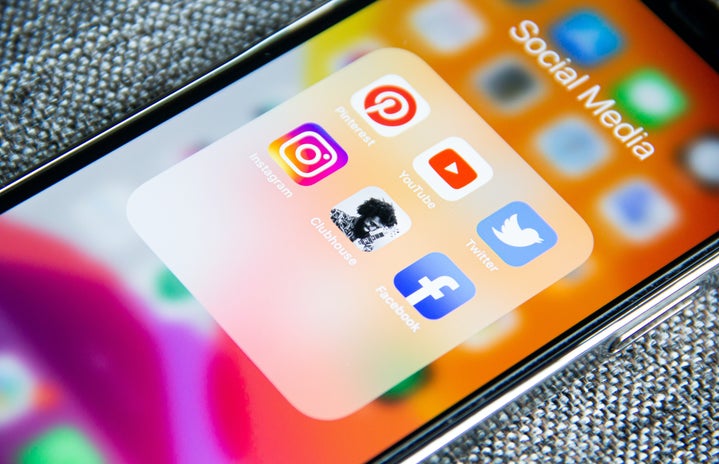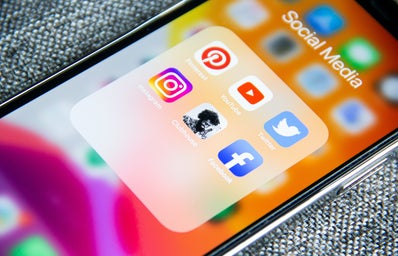One of my favorite things to do online is watch YouTube videos. For the past four years or so, I have been an avid true-crime fan. Although it seems a bit shameful now, only a year ago I once wore that title as a badge of honor. If I were to be truly honest with myself, I have always been interested in very abnormal things. Growing up, I was a huge history buff. I went through phases of obsession: (Ancient Egypt, the sinking of The Titanic, Mayan and Aztec cultures, the gold rush, the Oregon Trail, pirates, and Ancient Rome and Pompeii, just to name a few). But my interest in true crime was different. It wasn’t like I was seeking anything. My fascination from each of the aforementioned historical events/eras stem from wanting to be a part of that era. Wanting to live through it. But with true crime, I was more than happy to keep my distance from the action, consuming other people’s stories and then moving on. For a long time, I thought that that was fine. That my interest, though a little morbid, was ultimately a natural human interest in the complexities of crime. And although there is nothing inherently wrong with wanting to hear stories of other people, there is a huge factor missing when it comes to consumers of true crime–empathy.
We may say that we empathize with the victims. We may say that we care about the impact a violent crime has on their families. But at the end of the day, when the podcast is over or the video is done, we can simply turn it off. But they can’t. It isn’t entertainment for them. The attack or murder of their loved ones isn’t going to go away once they turn off their phones. They have to live through it, everyday. Not only are they wrestling with grief and anger and confusion and sadness, but, for many families since the rise of social media, they are also struggling with attention from an online community who have no real stakes involved in the situation. We don’t lose anything by listening to a 30 minute video about a young girl’s murder. WHile it may bring us sadness, it won’t go on to alter our lives much beyond that.
Recently, there has been a lot of online discourse surrounding the true crime community and the ethics both creators and consumers have. After falling into some controversy surrounding a now deleted tweet regarding the Johnny Depp vs. Amber Heard trial, true crime Youtuber Bailey Sarian was heavily attacked on social media. While the original issue was her mockery of the trial, it didn’t take long for viewers to begin pointing out the ethics behind the videos that made her famous. Sarian is known for a series on her channel called “Murder, Mystery and Makeup Mondays” where she discusses a true crime story and does her make up at the same time. Her videos are easy to watch, engaging, and entertaining for many viewers–myself included. However, the criticisms she was receiving were completely warranted. Many viewers were upset at her perceived lack of empathy for the victims and families discussed in her videos. Others took issue with the fact that Sarian often makes jokes in her videos, with some people believing that she does not take the subject she is discussing as seriously as she should be.
There is nothing inherently wrong with trying to make light of traumatic situations. But most people believe that should only be done during a situation that directly involves the person making light of it. When Sarian makes jokes that can be perceived as “insensitive” or “uncaring” by viewers, that means it is just as easy for family members or people closely involved with the cases at hand to see the video.
Once this issue was brought to light, I couldn’t help but wonder why I was so captivated by Sarian’s videos in the first place. Why do people, specifically women, get so enthralled with true crime? The answer to this question is layered, as no two women are the same, and regardless of reasoning, each experience a woman has in regards to consuming true crime content is going to be different. Some women may find the criminal mind fascinating. Others may find a morbid curiosity in acts of violence, due to the fact that they could never see themselves committing such a crime. But for many, the reasoning is quite simple: we, as women, are in danger of being attacked at a much higher rate than men. Some of us choose to consume true crime content because we think, on some level, that it will help protect us in the long run. If we know how other women managed to survive a violent crime, it may help us to act in a similar manner should we find ourselves in a life or death situation. Another aspect is the idea of a “that could have been me” mentality. When a woman is brutally attacked or harmed in some way, other women take notice. We start carrying our keys in our hands on neighborhood walks, double-checking our doors are locked at night and even checking the trunk and underneath the car for an intruder. While this sort of mentality can often be viewed as self-serving, in all actuality, these sort of fears hold merit.
In the United States alone, almost three women are killed by an intimate partner every day. Women are more likely to experience extreme acts of violence, especially when said violence is coming from a romantic or intimate partner. Women are more likely to be killed in more intimate ways than men, such as by stabbing, beating or strangling. The details described during true crime videos and podcasts are often incredibly gruesome, yet for some reason, women continue to tune in. I think a lot of it boils down to the fact that the crimes are about us. When consuming true crime, it feels very real to female viewers in a big sense due to the fact that it can happen to any of us at any time. Some women find security in learning about other violent crimes so that they feel more prepared in case they experience an incident themselves. Hearing how other women survive and escape captors and attackers gives us ideas for survival.
In addition to this, many true crime creators organize fundraisers for different organizations that help with crime related issues, as well as donation drives for victims and their families. YouTubers Danelle Hallan and Kendall Rae are both well known for this. Hallan regularly attaches direct donation services for the victims talked about in her videos, and Rae raised over $159,000 for her 2022 fundraiser for the National Center for Missing & Exploited Children.
Despite these benefits of true crime content, for many people, the negatives far outweigh the positives. Dealing with trauma is hard enough on its own. Imagine being forced to live through that trauma publicly, time and time again. True crime an be exploitative to the lives of the real people involved by showcasing their pain and loss in order to tell an interesting story, In addition, allowing anyone online to have an opinion on a situation and spread it is an almost foolproof way to allow for misinformation to run rampant. Negative consequences can come from this, such as wasted police time on false leads and even, in extreme cases, wrongful arrests and convictions. I am not trying to tell anyone to give up an interest in true crime, nor am I trying to discredit the work done by creators to make such content. I am simply hoping to acknowledge the different ways in which media is consumed by us as women in the hopes of finding an answer as to why we are so captivated by true crime.


